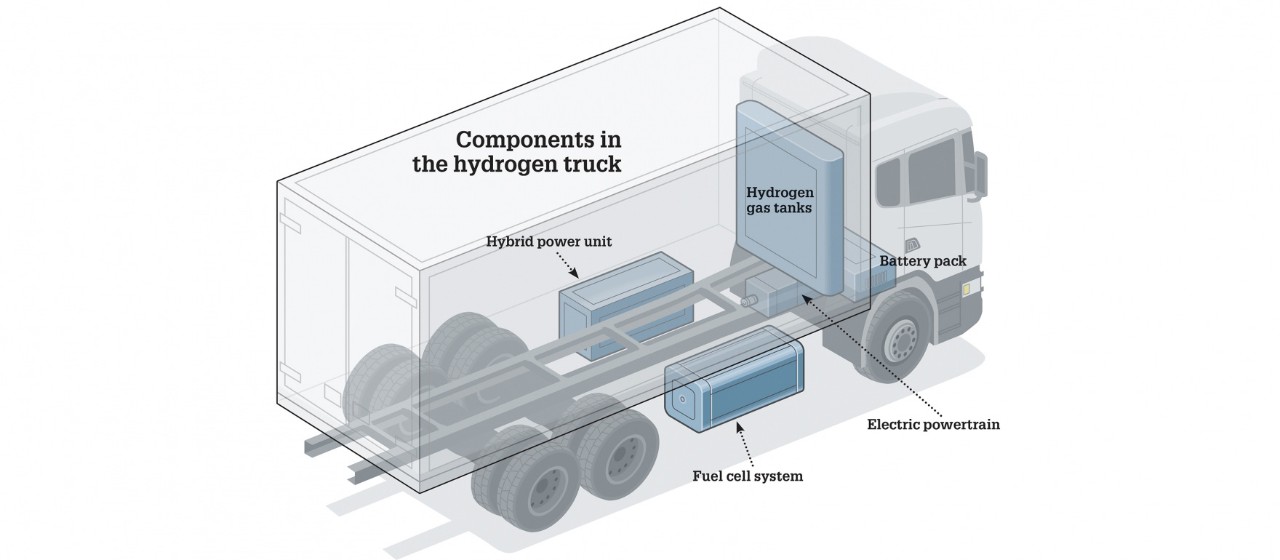
How does a hydrogen fuel cell electric truck work?
Electrification, automation and various hybrid and alternative fuel solutions are already attracting a lot of attention. However, one possibility that has been overshadowed in comparison is hydrogen fuel cell technology.
The trucks, which are fully electric, are fitted with an electric powertrain, and energy is converted to electricity from hydrogen gas in fuel cells on board the vehicles. The fuel cell powered truck also has a battery for moments when extra power is needed, and when the vehicle needs to recuperate electric power from brake energy.
Hedvig Paradis, Head of New Business Concepts with a PhD in fuel cell technology from Lund University, has been studying and working in this rapidly evolving area for several years. She is excited by its potential.
“Different customers in different regions around the world will need different solutions, and hydrogen fuel cell technology can be one of those solutions. We can see for example in Japan, South Korea and California that they are pushing for hydrogen based solutions, and building hydrogen gas stations,” she says.
How a hydrogen fuel cell electric truck works
- A fuel cell creates electricity by an electro chemical process using hydrogen and oxygen.
- The electricity generated by the fuel cells powers the electric powertrain. The system has an integrated battery buffer.
- The only emissions are pure water.
The strengths of hydrogen-based solutions
A major strength of hydrogen-based solutions is the fact that it is a zero emission technology; only water is actually emitted locally by the truck itself. This is based on the fact that the hydrogen is produced in a renewable way.
Another real positive for hydrogen fuel cell vehicles, and a reason for the growing interest, is that they have attributes comparable to conventional vehicles, such as refuelling patterns and infrastructure build-up. That’s attractive to those who are wary of making the dramatic change some new technologies require.
Challenges with producing the hydrogen fuel
There’s the central issue of how and where the hydrogen fuel is produced.
“Hydrogen gas stations are not that developed yet, although there is more infrastructure emerging. Some, like Asko, are actually building their own refuelling stations so they are in control of their own ecosystem. There’s a need for sustainable solutions that have less environmental impact.”
Added to this is the need for a lot of space on the truck or bus for the hydrogen tanks. The solution available today takes up a lot of volume to maintain a good range that could otherwise be used for transporting goods or people